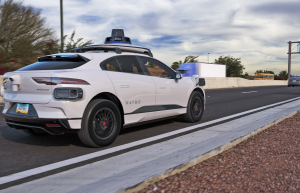We may not be able to curtail rising temperatures. The goals set a few months ago in Paris to prevent further temperature rises around the world are almost sure to fail, according to a new study.
During the "Paris Agreement" at the United Nations Climate Conference last December, each country agreed to reduce greenhouse gas emissions to limit global warming to less than two degrees Celsius. However, researchers have now shown that these goals may be unrealistic.
The researchers modeled the projected growth in global population and per capita energy consumption. They also modeled the size of known reserves of oil, coal and natural gas, and greenhouse gas emissions. This allowed them to see just how difficult it will be for nations to achieve the warming goal set in Paris.
"Just considering wind power, we found that it would take an annual installation of 485,000 5-megawatt wind turbines by 2028," said Glenn Jones, one of the researchers. "The equivalent of about 13,000 were installed in 2015. That's a 37-fold increase in the annual installation rate in only 13 years to achieve just the wind power goal."
In fact, the researchers found that there would have to be a massive overhaul in energy infrastructure and energy mix in order to come close to climate goals. This particular overhaul would require rates of change that have never happened in human history.
In addition, more people are being born every day. This means that there will have to be more of an effort in order to change energy usage since there will be more demand in the future.
"There will be about 11 billion people on Earth by 2100 (compared to 7.2 billion today)," Jones said. "So the question becomes, how will they be fed and housed and what will be their energy source? Currently 1.2 billion people in the world do not have access to electricity, and there are plans to try to get them on the grid. The numbers you start dealing with become so large that they are difficult to comprehend. To even come close to achieving the goals of the Paris Agreement, 50 percent of our energy will need to come from renewable sources by 2028, and today it is only 9 percent, including hydropower. For a world that wants to fight climate change, the numbers just don't add up to do it."
The findings show that current goals will need a significant shift to renewable resources. This particular shift may be difficult to attain in time in order to prevent further warming. While the findings may be grim, they do show what needs to be done in order to achieve the goals.
The findings were published in the March 2016 issue of the journal Energy Policy.
© 2025 HNGN, All rights reserved. Do not reproduce without permission.








